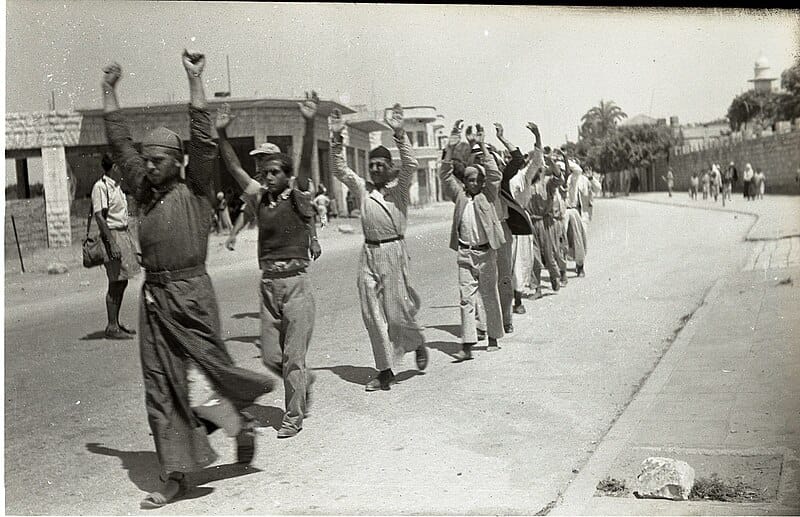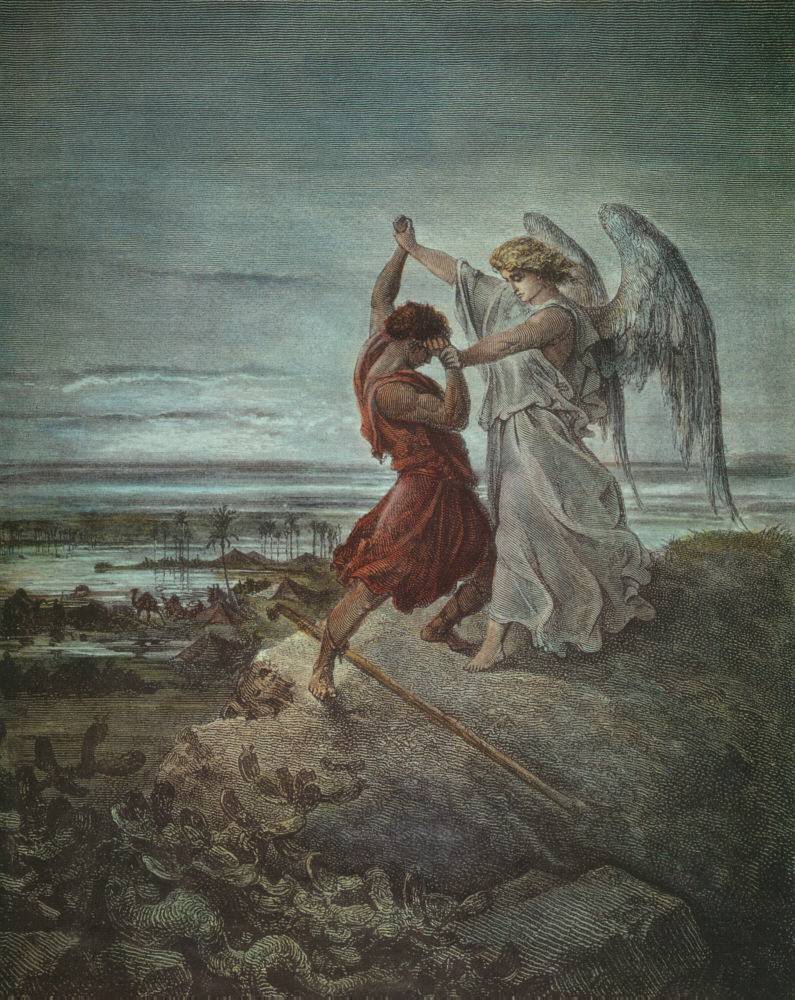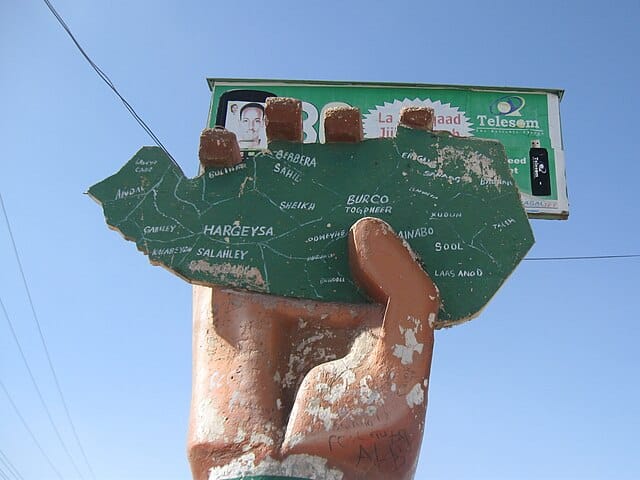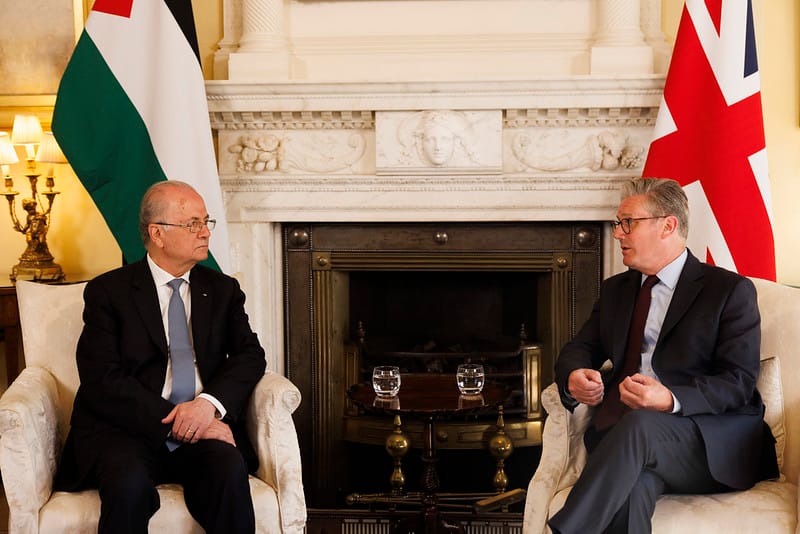
Who is a hostage? Families of the 120 Israelis who remain captive in Gaza voiced a clear and moving answer at the beginning of this month, when they launched a fresh campaign for a ceasefire and prisoner exchange deal under the banner: “We are all hostages”. To whom exactly this collective “we” extends is open to interpretation – but the families have not been alone in insisting on some kind of expansion of the use and application of the term hostage over the past eight and a half months. Following the release of 105 Israeli hostages and 240 Palestinian prisoners back in November, several writers immediately drew attention to the discrepancy in status ascribed to Israelis abducted by Hamas on 7 October, and to Palestinians held in Israeli prisons without trial, charge, or conviction.
Of those 240 Palestinian prisoners released in November, three-quarters had not been convicted of a crime. They were being held in administrative detention, a function of Israeli military law which enables the seizure of Palestinians in the occupied territories (and, increasingly, within the Green Line) without warrant, on the basis of undisclosed evidence, and for arbitrary periods of time – often years. Children as young as 12 years old are subject to administrative detention, and indeed children made up nearly half of the Palestinians released under the exchange deal.
While military law and administrative detention are permitted according to international humanitarian law as a temporary and extraordinary measure, Israel has been using military law to detain hundreds of Palestinians every year since 1967 – hardly temporarily or extraordinarily. Conditions in which detainees are held are likewise rife with human rights abuses. A recent UN report uncovered systematic torture and maltreatment of incarcerated Palestinians since but also long before 7 October, including routine “beatings, dog attacks, the prolonged use of stress positions and sexual assault.” One reads this, and one looks at the images of blindfolded men, and at a certain point it becomes difficult not to think of a certain word. In the recently leaked photographs of Gazans being held in the Sde Teiman detention centre, for instance, the inmates look suspiciously like hostages.
So what exactly is it that makes a hostage a hostage? We have a responsibility to be precise: in an essay published last week in the New York Review of Books, British-Palestinian writer Isabella Hammad issues an important reminder that language cannot “somehow rise above political realities: legal definitions, historical records, and the evidentiary basis of the crimes called ‘genocide’, ‘ethnic cleansing’, and ‘apartheid’.” What then are the legal definitions and historical records when it comes to the crime of hostage-taking?
According to international law, hostage-taking is bound up with a specific intent that distinguishes it from other instances where persons are deprived of their liberty. Hostages are taken “in order to compel a third party, namely, a State, an international intergovernmental organisation, a natural or juridical person, or a group of persons, to do or abstain from doing any act as an explicit or implicit condition for the release of the hostage”. Though former UN official Moncef Khane has argued that Palestinians are indeed illegally detained in order to compel Palestinian society at large into “submissiveness to, and acquiescence in the occupation”, it would appear that Palestinians are not whom the convention has in mind here.
Without disputing the definition according to international law, I want to bring to the surface the very particular ethical implication of the term hostage. One would have to take pains to avoid the term’s place in the thought of 20th-century philosopher Emmanuel Levinas. Born in 1906 to Jewish parents in present-day Lithuania, Levinas is best known for conceiving a radical ethics of responsibility in which the self is perpetually interrupted by the emergence of the Other.
As Levinas would have it, I am never completely myself: the Other, with his face, and with “those eyes”, confronts me, impinges himself upon me, persecutes me, entirely dislocating the subject that I had understood to be me. His problems become my problem. I can hardly step outside before some exterior demand lays claim to me, forcing me to respond, making me responsible. So extreme and inherent is this condition of susceptibility to the Other and his ethical demand – a condition that is “prior to the ego, prior to principles” – that I am hostage to him. When Levinas says that “the subject is a hostage (otage)”, he means it. He is not being metaphorical; this is the universal human condition “through and through”. For Levinas, it is the condition of being hostage to one another that makes the world go round and enables civilisation.
Levinas didn’t pull such a philosophy out of thin air. Unsurprisingly, his ideas were based on his own first-hand experience of persecution. He spent much of the second world war in the Fallingbostel prisoner of war camp near Hanover, where upon being identified as Jewish, he was held in separate barracks. But Levinas himself was never technically held hostage, as the Geneva Convention would later define it. Danielle Cohen-Levinas, a philosopher and Levinas’ daughter-in-law, writes that he was “as one says, a prisoner of war”: he had enlisted as a soldier in 1939 and was captured as such. Nonetheless, Levinas would insist that he had “known that word ‘hostage’... since the persecution of the Nazis”, and that he had come to know it intimately during his time in Fallingbostel, “in the total passivity of abandonment”.
In understanding himself as a hostage before, during and long after he was released from Fallingbostel, indeed in eventually extending the term to the human condition itself, Levinas seems to call for an ethics in which every person is taken into account, and is made accountable – an ethics that is totally unqualified and indiscriminate. However, further study of his work reveals that to be a hostage in Levinas’ view does in fact firstly require fulfilling certain conditions, conditions of none other than race and ethnicity.
In his 1963 book Difficult Freedom, Levinas warns of the threat to a Western ethical tradition presented by the “rise of the countless masses of Asiatic peoples and underdeveloped peoples”. Palestinians are not named here. But when pressed to answer on the otherness “above all” of the Palestinian in a famous interview with Shlomo Malka following Israel’s invasion of PLO-controlled southern Lebanon in 1982, Levinas, a committed Zionist, throws a life’s work of philosophy out the window: “If your neighbour attacks another neighbour or treats him unjustly, what can you do?” (An estimated 49,600 Palestinian and Lebanese civilians were killed or wounded during that particular war.)
The impasse presented by non-white people, and seemingly by Palestinians in particular, to ethical, legal and political definitions of hostageship deserves our attention and concern. Employing the same terminology to describe the actions of Hamas and those of the Israeli military and government has been met with accusations – particularly from Jewish community representatives – of minimising the atrocities committed on 7 October, despite the International Criminal Court’s recent recognition that war crimes have been committed by both parties.
In an interview last November, Netanyahu’s senior advisor Mark Regev echoed back a question about the number of detained Palestinian children released in the exchange deal: “It’s like, we release children and they release children. I’m sorry, I can’t accept that.” What is unacceptable to Regev is that Palestinians could have lives as valuable and as sacred as the next person. Minimising the experience of Israeli hostages does not occur in an arrangement where “we release children and they release children” – if we consider that the task and function of the conjunction “and” has only ever been to expand, to lengthen, to stop a sentence from simply ending there. And so once again, one arrives at the question posed by Jacqueline Rose midway through an essay published on the final day of the exchange deal: “How much pain is anyone able to hold in their mind at once?”
In other words: what number of people are we willing to include in the families’ cry, “We are all hostages”? How far are we willing to cry it? In a world where words have the power to signal the value of a life, to instruct or endorse the massacre of hundreds of Gazans in order to free four Israelis – surely the very least that we can do is expand that “we” to the ends of the earth, calling for the liberation of all people everywhere, in terms proper to the call.
And perhaps the most we can do is really mean it. I think of Israeli anti-apartheid activists who, in solidarity with Palestinians living and dying under occupation and siege, themselves opt to sit in military jail. This act, like acts of people all over the world who are unable to sit comfortably at home as long as others are unjustly imprisoned, must be the true realisation of what Levinas called “the unconditionality of being hostage” – the unconditionality of which reaches far beyond the imagination of the philosopher. ▼
Kate Greenberg is a writer, activist, and editor at Vashti.
There’s no corporation or big advertisers behind Vashti – we're a workers' cooperative and rely on small donations to keep running. Support our journalism to help break the consensus.
To donate once, click here. To donate monthly, click here.
Author

Kate Greenberg is a writer, activist, and editor at Vashti.
Sign up for The Pickle and New, From Vashti.
Stay up to date with Vashti.



